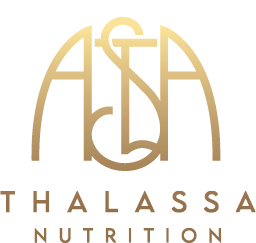Olives oil in Djerba Tunisia
I was lucky to be part of this in Djerba Tunisia no one time but two-time really lovely people
Olives are one of the ancient foods recognized by humans, dating back some 8,000 years in the Mediterranean region. The olive tree was respected as a symbol of peace and happiness, despite the fact that olives were used as food and a source of oil. Olive leaf extract boosts energy and is a natural element that can improve mood and overall happiness.
The origin of Olive, a small tree of the Oleaceae family, was on the eastern Mediterranean coast and Northern Iran and is at present grown in several countries such as Spain, Italy, Tunisia, Australia, Argentina, Greece, Turkey, and California. Over thousands of years, The health benefits of olive oil have been documented by many prehistoric physicians like Hippocrates, Galen, Dioscorides, and Diocles. Olive fruit is yellowish green and the young olive can be consumed raw or eaten after preserved, while the color of the ripe olive fruit will be black. Olive oils are typically made from olives that are old.
Olives are available in a variety of colors ranging from green to brown to purple to black, with flavors just as varied ranging from sweet to sour. However, all olives, in fact, begin only in green color. Unripe olives are extremely bitter and cannot be eaten due to a substance called ‘oleuropin’. In order to obtain a tasty edible fruit, they must have their bitterness removed through several curing processes. Olives are picked at different stages of ripeness. Once they ripe, they gradually turn from green to black. They are then cured using one of the several processes, such as soaking in oil, brine or water, or dry packing in salt. A more artificial, but a quicker method which takes only a few days for removing the bitterness mainly for canned black olives is soaking the olives in ‘lye’. However, it removes much of the olive’s original flavor.
The essential nutrients found in Olives are:
Vitamins A, B-complex, C, E, K, Sodium, Potassium, Calcium, Copper, Iron, Magnesium, Manganese, Phosphorus, Selenium, Zinc, Omega-3, -6, -9 fatty acids are the vital nutrients that are present in olive.
Olive oil is rich in monounsaturated fat and antioxidants like chlorophyll, lutein, polyphenols and carotenoids.
There are wide-range of benefits of Olives and olive oils:
Whole olives contain the antibacterial and antifungal
Olives are known to increase production of hydrochloric acid in the stomach and stimulates the immune system.
Olives have a useful protein-to-fat ratio and it stays alkaline.
Olive oil may also be used as a massage oil to maintain softness and moisture skin. One can use olive oil and mix with bath soap or body lotion. Also, olive oil is believed to erase fine lines and wrinkles.
Olive oil may be used to reduce thickened skin on the soles of the feet and also to strengthen nails.
Olive oil is as very effective to maintain the firmness and shape the breast.
The vital constituent present in olive leaf is called ‘Oleuropein’. It is a phytochemical, meaning it comes from a plant that aids to get rid of the infection without the use of a chemically made antibiotic. Oleuropein has also been revealed to possess antioxidants that help to prevent diseases, bacteria, and viruses from developing in the body.
Olive leaf extract and the oils that are obtained from it are known to regulate circulation in the body by aiding blood to flow very smoothly through the veins and arteries. Consecutively, this assists in defending against heart disease and heart conditions that can lead to additional risks.
In a study, Researchers at the Universidad Autonoma de Madrid in Spain discovered that a diet rich in extra virgin olive oil helped to lower LDL (bad) cholesterol and significantly stimulated an increase in HDL (good) cholesterol.
The chemical element chloride in the olive fruit can help to improve liver function in order to work better so that helps the body in removing waste materials.
A recent study of Annals of Oncology found a monounsaturated fatty acid found in olive oil known as oleic acid has the ability to decrease the effect of an oncogene, a gene that will convert a host cell into cancer You do not have access to view this node. This specific oncogene is linked with the quick growth of breast cancer tumors.
Olive leaf has long been used in early Greek civilization as a wound cleanser. Olives are also used to help lower blood sugar levels and lower high blood pressure.
Linoleic acid is an acid that is found in olive fruits. This acid is incredibly useful for breastfeeding mothers as linoleic acid deficiency can decrease the baby’s growth and increase the probability of several skin diseases.
Other olives health benefits are to contribute to the body structure, thus making the body become stronger..
Valuable Vitamins such as vitamins A, D, E, and K present in olive oils provide health benefits in human health as these vitamins help the growth of bone and mineral levels in the body of children and adults.
Applying olive oil to hair and scalp care is a correct solution for healthy hair since the olive oil nutrition can repair damaged hair cuticles while offering more moisture to the hair so it can make the hair softer, healthier, and shiny.
Olive oil is an amazing skin conditioner and I use it to shave – Using commercial shaving cream and moisturizer is horrible for your skin, but olive oil isn’t and enhances your skin’s youthfulness.

 no
no NO
NO no
no